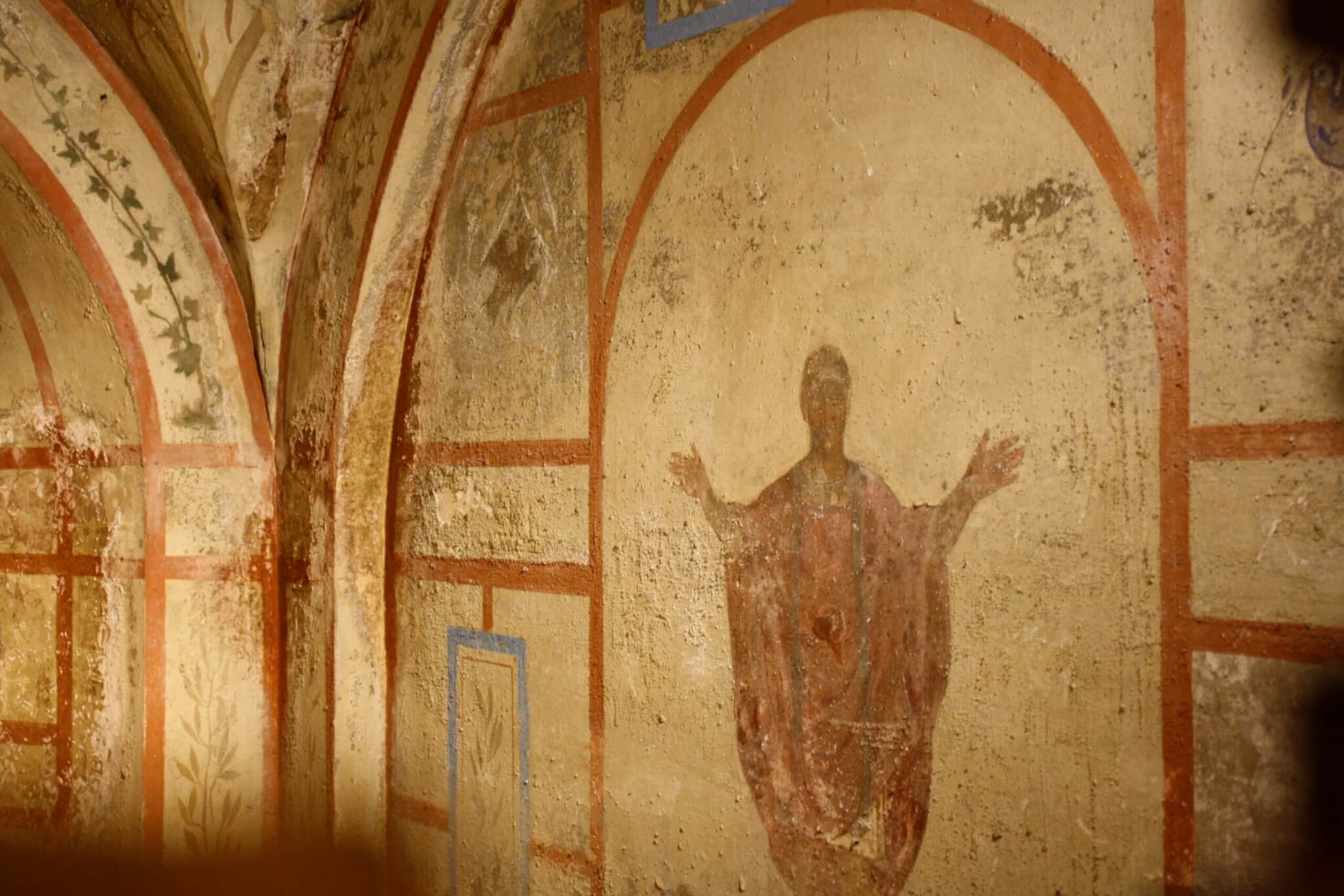The law of praying (4): Remembering the Living
Over the summer, we are looking at a section from the Canon of the Mass each week, to learn what the ‘law of praying’ has to teach us about what we believe. You can find the previous posts in this series in our reflections archive.

Remember, Lord, your servants (N. and N.)
and all gathered here,
whose faith and devotion are known to you.
For them, we offer you this sacrifice of praise
or they offer it for themselves
and all who are dear to them:
for the redemption of their souls,
in hope of health and well-being,
and paying their homage to you,
the eternal God, living and true.
Now we really do pray for specific individuals. It’s been a very long time since the priest actually spoke anyone’s name out loud at this point, but the ‘N. and N.’ (standing for ‘Name’) are still printed to remind him to pause here and do so in silence. That pause is a wonderful reminder for all who are present to call to mind all those we should be praying for.
God doesn’t need our prayer for others. He doesn’t refuse to shower blessings on people simply because other people haven’t prayed for them. God can work without us. But what a pity it would be if he had to. Our ability to pray for others — to pray and actually make a difference to the lives of others — is a wonderful gift from God.
The image we must have is of a mother baking a cake. She knows what she’s doing; she can manage perfectly well by herself. Then her five year old son comes along and wants to join in. He doesn’t know what he’s doing, and it’s more work to let him help. But she does anyway. She lets him stir the mixture. She doesn’t need him to do it, and it’s not particularly helpful, and he splashes it everywhere and doesn’t really contribute anything to the process at all. But now he can genuinely say that he has had some part in making the cake. They’ve worked together to make that cake, even if the mother really did all the hard work. In a similar way, God doesn’t need our help to make good things happen, but in his fatherly love he allows us to be involved in his baking. It’s a privilege he gives us so that we can genuinely claim some share in the good things we bring about through our prayers.
If you ever get the chance to visit the private chapel that belonged to St John Henry Newman in the Oratory in Birmingham, you will see all around his altar pictures of his friends and family, and various letters people had sent him. They were there to remind him to pray for them during Mass. He kept a book as well, with daily and weekly prayer intentions — the names of those he loved, and those who had asked his prayers, and all kinds of other things he just thought he should be praying for. We ought to have great confidence in bringing all our needs and concerns before God. Christ himself tells us to ask. As St Augustine says, ‘He would not so encourage us to ask were he not willing to give. Let human slothfulness blush, he is more willing to give than we to receive.’
During the Mass, we pray for the needs of others. And we don’t just pray for abstract spiritual goods for them, but those things that are essential: health and well-being, as well as redemption. Because we are joined to Christ in baptism, we are called to share in his role of interceding on behalf of the world. There is a great value to intercessory prayer, as our part in sanctifying the whole of God’s creation, and bringing it into line with his will. And so we are reminded that our prayer really does have the power to change the world.

